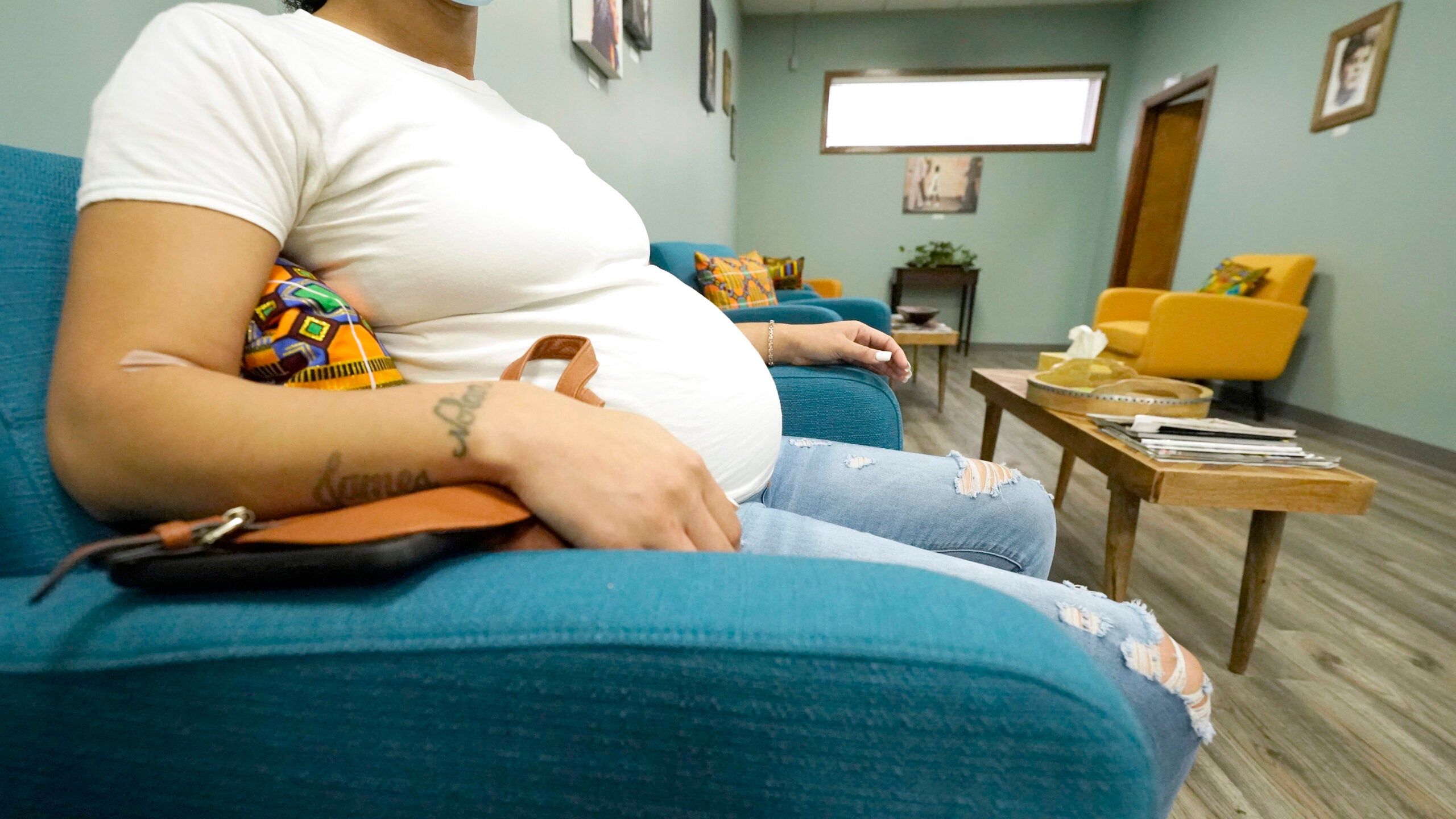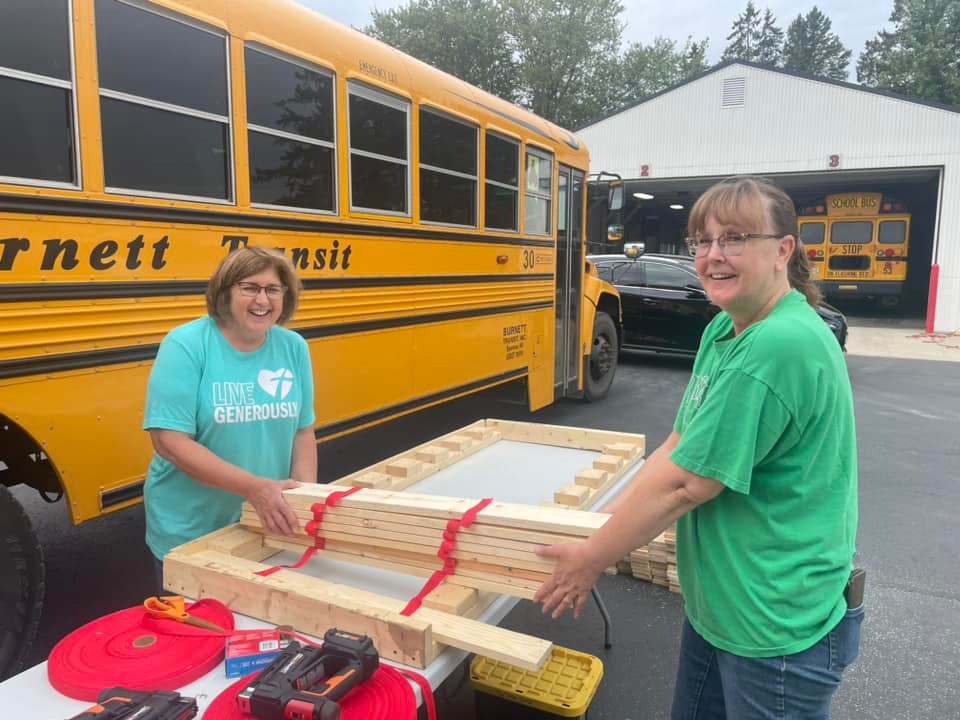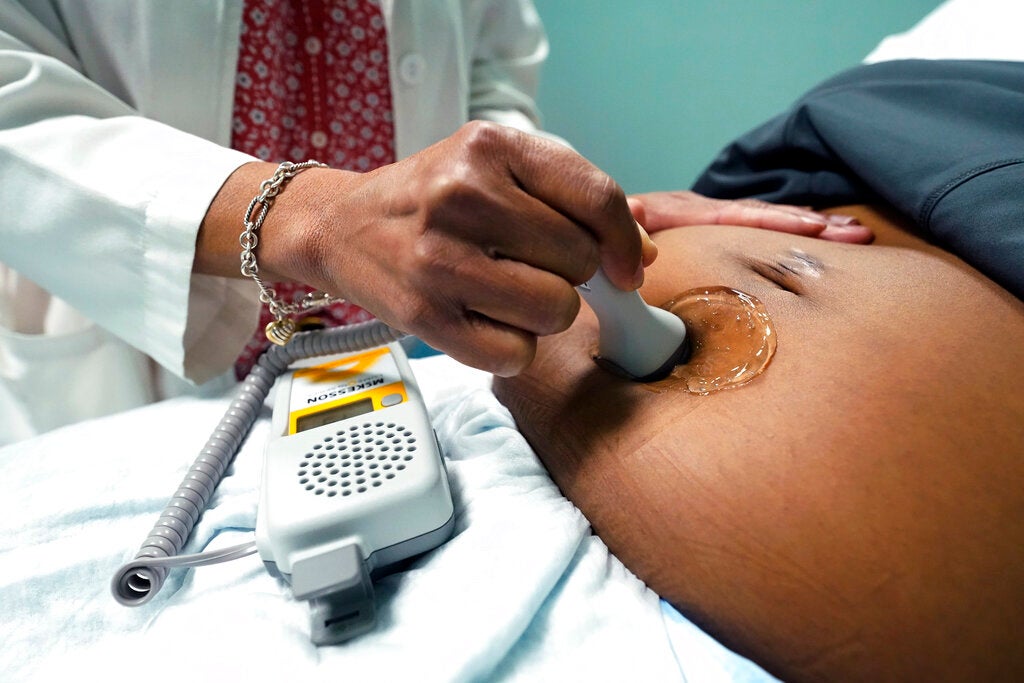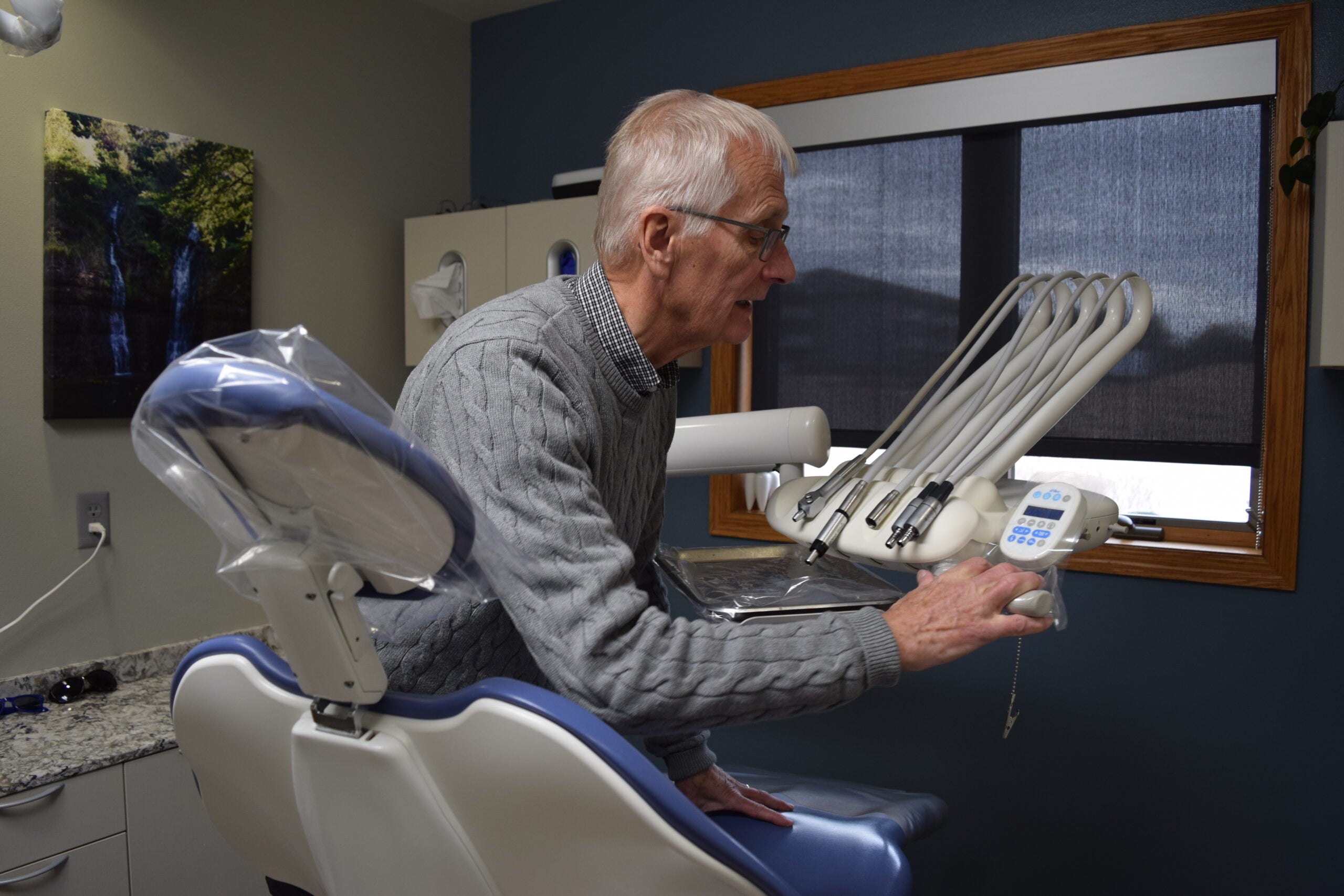New federal funding will help place more OBGYNs in training in Wisconsin’s rural communities.
The University of Wisconsin-Madison’s School of Medicine and Public Health will receive a $750,000 grant over the next three years to expand their rural OBGYN residency track.
The funding comes from a grant program through the Health Resources and Services Administration. Carole Johnson, administrator of the federal agency, said UW-Madison is the first recipient to use the funding for an obstetrics and gynecology residency, which she said is a high priority area.
Stay informed on the latest news
Sign up for WPR’s email newsletter.
“We are laser-focused on addressing access to maternal health care services, so we get better outcomes for moms and babies,” Johnson said. “I know that that is a critical issue in Wisconsin.”
More than 40 percent of Wisocnsin’s rural hospitals do not have obstetric services, according to data from the Wisconsin Office of Rural Health.
Dr. Ryan Spencer, gynecologic oncologist and project director of the Rural Residency Program Development grant at UW-Madison, said there is interest among new doctors in practicing in these communities. He said the current rural residency program, which started in 2017, accepts one student each year.
“In the last few years, we have seen over 200 applications for that single spot,” Spencer said, adding the interest outpaces what UW sees for other residency spots.
Spencer said the new funding was awarded in partnership with Marshfield Clinic Health System with the goal of increasing the number of residency spots as well as the amount of time doctors are spending in rural communities.
He said efforts to increase rural residency placements in other medical specialties have shown that the more time doctors spend training in rural areas, the more likely they are to practice there after graduating.
“We need to have that as a goal, because we are seeing a massive shift specifically in OBGYNs out of rural areas throughout the United States,” he said. “This has been going on for quite some time, but it’s becoming much more pronounced in the last five to 10 years.”
Shortage of providers contributing to increasing closures
Spencer said the availability of staff is the most significant factor in whether rural hospitals are able to maintain labor and delivery services.
Several communities around the state have already seen birthing centers close or consolidate in the last year. Marshfield Clinic Health System paused labor and delivery services in Rice Lake in May because of staffing limitations. According to their website, the birth center remains closed as of Monday. The closure of two HSHS hospitals in the Eau Claire area this spring also caused concerns about the availability of labor and delivery beds in western Wisconsin.
Ascension Mercy in Oshkosh stopped providing labor and delivery services in October, citing a low volume of deliveries. Declining local birth rates have also been cited by Froedtert and the Medical College of Wisconsin as part of the health system’s decision to close the birth center in Menomonee Falls next month.
Spencer said these closures not only affect current patients but also have an impact on the future of care.
“If you’re at a place that has maybe one or two obstetric providers anywhere, but certainly in a rural area, and you lose them, then you’re going to be significantly more challenged in trying to recreate that obstetric unit later on than if you are able to recruit someone who can fill a spot,” he said.
He said a lack of OB providers has an impact on both infant and maternal health, increasing mortality rates and adverse outcomes like out of hospital births.
Johnson said it will take time to establish the new residency program, but she’s confident the investment will lead to more providers serving rural communities in states like Wisconsin. She said the federal grant program has already led to more than 300 residents getting placement in rural tracks across the country.
Wisconsin Public Radio, © Copyright 2025, Board of Regents of the University of Wisconsin System and Wisconsin Educational Communications Board.




